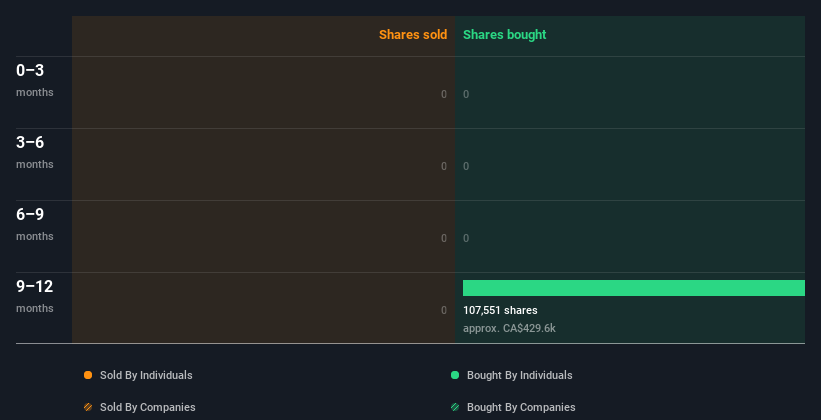Quite a few insiders invested in Chesapeake Gold Corp. (CVE:CKG) last year which is positive news for shareholders
Generally, when a single insider buys stock, it is usually not a big deal. However, when several insiders are buying, like in the case of Chesapeake Gold Corp. (CVE:CKG), it sends a favourable message to the company's shareholders.
While insider transactions are not the most important thing when it comes to long-term investing, logic dictates you should pay some attention to whether insiders are buying or selling shares.
See our latest analysis for Chesapeake Gold
The Last 12 Months Of Insider Transactions At Chesapeake Gold
In the last twelve months, the biggest single purchase by an insider was when CEO, President & Director Alan Pangbourne bought CA$224k worth of shares at a price of CA$4.00 per share. That means that even when the share price was higher than CA$3.65 (the recent price), an insider wanted to purchase shares. It's very possible they regret the purchase, but it's more likely they are bullish about the company. In our view, the price an insider pays for shares is very important. Generally speaking, it catches our eye when insiders have purchased shares at above current prices, as it suggests they believed the shares were worth buying, even at a higher price.
Chesapeake Gold insiders may have bought shares in the last year, but they didn't sell any. You can see the insider transactions (by companies and individuals) over the last year depicted in the chart below. By clicking on the graph below, you can see the precise details of each insider transaction!
There are always plenty of stocks that insiders are buying. So if that suits your style you could check each stock one by one or you could take a look at this free list of companies. (Hint: insiders have been buying them).
Insider Ownership of Chesapeake Gold
I like to look at how many shares insiders own in a company, to help inform my view of how aligned they are with insiders. I reckon it's a good sign if insiders own a significant number of shares in the company. Insiders own 35% of Chesapeake Gold shares, worth about CA$86m. This level of insider ownership is good but just short of being particularly stand-out. It certainly does suggest a reasonable degree of alignment.
So What Do The Chesapeake Gold Insider Transactions Indicate?
There haven't been any insider transactions in the last three months -- that doesn't mean much. On a brighter note, the transactions over the last year are encouraging. Overall we don't see anything to make us think Chesapeake Gold insiders are doubting the company, and they do own shares. So while it's helpful to know what insiders are doing in terms of buying or selling, it's also helpful to know the risks that a particular company is facing. At Simply Wall St, we've found that Chesapeake Gold has 2 warning signs (1 is a bit concerning!) that deserve your attention before going any further with your analysis.
Of course, you might find a fantastic investment by looking elsewhere. So take a peek at this free list of interesting companies.
For the purposes of this article, insiders are those individuals who report their transactions to the relevant regulatory body. We currently account for open market transactions and private dispositions, but not derivative transactions.
Have feedback on this article? Concerned about the content? Get in touch with us directly. Alternatively, email editorial-team (at) simplywallst.com.
This article by Simply Wall St is general in nature. We provide commentary based on historical data and analyst forecasts only using an unbiased methodology and our articles are not intended to be financial advice. It does not constitute a recommendation to buy or sell any stock, and does not take account of your objectives, or your financial situation. We aim to bring you long-term focused analysis driven by fundamental data. Note that our analysis may not factor in the latest price-sensitive company announcements or qualitative material. Simply Wall St has no position in any stocks mentioned.

 Yahoo Finance
Yahoo Finance 
